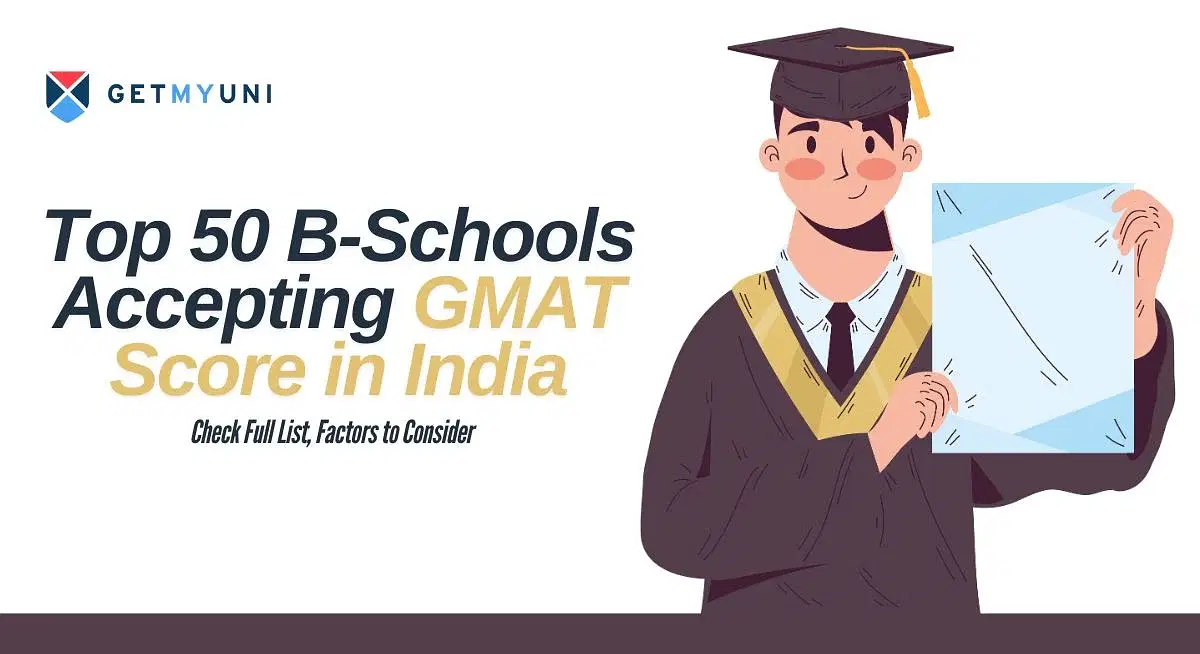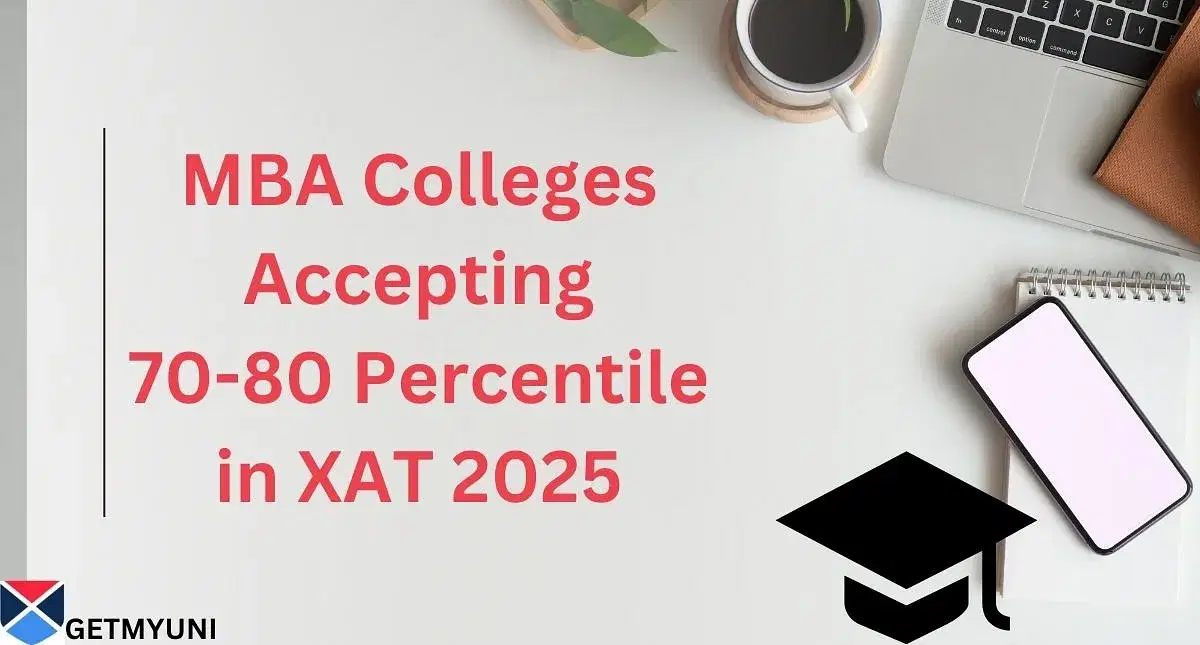Check out some of the crucial factors on how to choose a B-School to pursue your higher education.
Table of Contents
Choosing the right B school is one of the important decisions in the life of an MBA aspirant. With new regulatory institutes arriving every two weeks, who doesn't need advice? But how to choose B school that is perfect? If you expect to get into MBA with a good CAT percentile, choosing a B school is not hard enough. This is because there are so many promising organizations out there.
But how to choose B school based on a percentage below or above 60 in the CAT or other national management entrance exams?
Let's check the parameters to keep in mind how to choose B school, with or without entrance exams.
How to choose a B-Schools?
The students will have to know the answer to "How to choose a B-School?" to pursue their higher education in one of the top b-schools, with considerable fees and enormous placement opportunities.
1. Goals for your post-MBA career
To succeed in Business School, you must be self-aware and reflective. Finding the schools that will help you get to where you want to be is largely determined by where you are in your career and where you want to go.
- Here, you have to decide how to use your MBA once you have completed it. Business school admissions committees search for candidates with clear and measurable goals and plan to accomplish them by obtaining an MBA from their school. Various application questions and interviews address these post-MBA career goals.
- To make the most out of an MBA, you should start by identifying your motivations. As you move through the marathon of the MBA application process, the clarity you gain from this step will serve as a guiding light.
2. Conduct a Self-Assessment
It's a highly competitive field when it comes to business school admissions. However, a good MBA program looks for applicants who are poised to make a significant impact after they have earned their MBA. Self-assessments can serve as useful guidelines to improve your profile and gain admission to a top business school.
You should consider the following factors when conducting a self-assessment:
- GPA at the undergraduate level
- Entrance-exam score
- The minimum amount of work experience
- Professional and academic skills
Based upon your responses to these questions, you can determine and sort the schools that you should apply to into three categories.
- Dream
- Stretch
- Safety schools
Moreover, there may still be time for you to make any changes needed to your profile if it has any gaps. Those without leadership experience, for example, can actively participate in local community projects.
3. Rigorous Selection
If the number of students who want to enter an institute increases, the selection process becomes more difficult. Consider the following factors:
- As a general rule, the quality of a B school is directly proportional to the thoroughness of the selection process.
- This means that the better the academy, the harder it is to get into, and the easier it is to get admitted, the better the chances that the academy isn't worth the trouble.
Read More: Top MBA Colleges in India
4. Location of the B-School
Companies often find it much easier to recruit management graduates from institutions close to their headquarters than traveling to an institution far away.
- For this reason, all else being equal, institutes (of the same kind) located in cities like Mumbai, New Delhi, and Bangalore perform better than institutes located in other cities. However, the top 30 institutes would be an exception to this.)
- Each B school employs a mix of full-time and part-time teachers. Often, part-time instructors provide special training for a course because of their expertise in the field. Now, for academies in the best-connected cities, part-time instructors can come and join sessions with relative ease. And that translates into better overall training quality. With your MBA, you may want to do some training/internships, etc., in different companies. This will help boost your candidacy for internships.
5. Picture of the B-School
One factor that does not need to be particularly emphasized is the reputation of a given management institute and its image in the industry. However, here are a few things to consider:
- Although it can be said that it is natural that older institutions have a better reputation than more recently established institutions, this is not always possible to generalize.
- Also, keep in mind that it's often possible that an older, older institute created a new institute. As such, the "parental/guardian" institute will be sure to aid the new institute in its founding years.
- This support may include but is not limited to faculty assistance, assistance in the selection process, and, more importantly, placement assistance.
6. Quality of Students
The quality of students determines the institution's quality in a way the students are the reflection of their institution. Therefore, the following points must be taken into consideration:
- Most of the academies in India follow a case-based learning approach, which depends on the quality of the peer-to-peer interaction.
- The quality of the students will ultimately weigh on the academy's image. And you will be known by the academy you went to for the rest of your life.
- So a good institute and good students have a symbiotic relationship.
7. Courses Offered
Often, students choose universities based on the programs they offer. These are:
- General Management Programme (GMP)
- Specialization-based Programme (SP)
- A GMP provides maximum diversity and placement opportunities instead of a specialty-based program because it allows students to join any industry. This program is available to students in most Ivy League schools and the IIMs.
- Some B-Schools offer programs tailored to a specific sector or specialization. Students should not be hesitant when applying to institutions like XLRI (PGDHRM), MICA, IRMA, and TISS, which are among the best in their fields.
- Recently, several top institutes providing GMPs began to offer specialized programs. However, despite the institute's credibility, the offered GMP program cannot be compared.
- Before applying, one must carefully examine specialized programs since the rub-off effect diminishes down the rating list.
Read More: MBA Courses
8. Return on Investment
In selecting an institute, the return on investment would be the most important factor. To evaluate whether a given MBA from a particular institute will earn you a good salary, we must consider how much it will cost to obtain the degree. Here are some things to keep in mind:
- These days, a positive trend is that students studying in top management institutes can also get education loans from banks at low-interest rates. The majority of student loans from these banks cover tuition and some other costs, including computers, library books, hostel fees, and laptops.
- Finances for management education are easier to obtain than they used to be. Students offered admission to the top B-Schools doesn't have to give up the financial cost. Students who are deserving of a scholarship receive a merit-and-means scholarship. Institutes that provide this kind of support may ask for specific information, such as the applicant's family income.
Read More: Best ROI MBA colleges in India
9. Scoping out B-Schools
With this two-step process, you'll have a clear picture of what your chosen Business schools will offer you. Researching online and talking to friends, peers, and colleagues who have completed MBAs may yield many possible options.
On the other hand, a great deal of information on the internet needs to be categorized and organized. This will help you make more confident decisions more quickly.














POST YOUR COMMENT